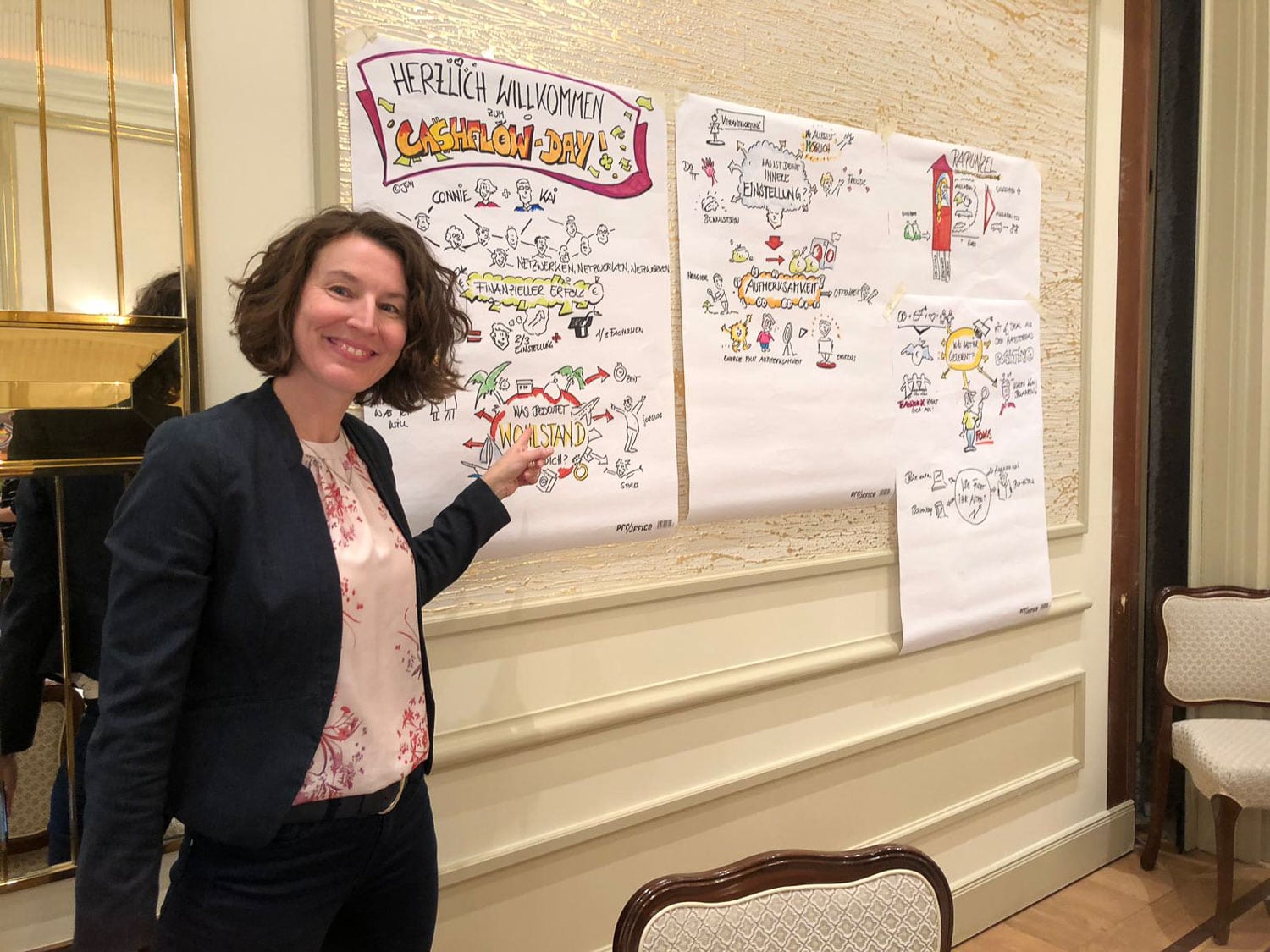Income generating steps
Become independent of donations in the long term - through income-generating steps
Income-generating steps are measures with which the steps for children foundation partially finances social steps – i.e. its own social facilities such as crèches, preschools and soup kitchens. When the running costs of the small business are covered, 100% of the surplus flows from the income and without any deduction in the social steps of the institutions in Namibia.
Through the small businesses founded in Namibia, steps for children creates training and jobs and helps the local people to generate their own income. Our aid organization enables through these small businesses at different locations realistic prospects of staying in Namibia and Zimbabwe and counteracts the causes of flight. The jobs in our own country thus support the economic cycle, so that our organization helps and sustains the local population Offers opportunities for an independent future.

By the salary of one of our employees on average 10 other family members fed.
vegetable growing
At our project site in Okakarara there is Ongombombonde in the neighboring town since 2014 an income-generating step – growing vegetables. The vegetable cultivation area is over 1.000 square meters, mostly under shade nets, but partly also outdoors, carrots, cabbage, beetroot and spinach grow here.
While in the initial phase of the project the women who cultivated them received a salary from steps, this is now financed through the sale of the vegetables.
All of the vegetables that are not sold are used by steps' own soup kitchen to prepare fresh meals for the children.
Even after the salary has been paid, steps has a reserve for steps to finance new seedlings and garden materials.
The vegetables are used in the project's own soup kitchen, in which all our steps children and employees are prepared meals every day. We sell the surplus of the harvest to guest farms and the surrounding population.
Since 2019, trees have also been grown in a new greenhouse that will be sold later.
Do you know our campaign where you can donate a seedling for the vegetable garden?
sewing room
The sewing room at our Project location Okakarara has been part of the activities as an income-generating step since 2006 (founded by the Augsburg Friends of Namibia). In the sewing room, single mothers earn their own income and can use it to feed their families.
Shoppers, aprons, cosmetic bags and also waterproof tablet and laptop bags are produced here. Some of them are sold to tourists in Namibia, but a larger part goes to companies and businesses in Germany as Christmas gifts for their customers or for school bazaars or African markets.
The surplus from the sewing room flows without deductions social steps like soup kitchen or kindergarten in Okakarara.
joinery
At the income-generating steps in Namibia, steps has a carpentry workshop at the Gobabis location, in which chairs, tables, benches, double beds, cabinet-table combinations, solar ovens and toys are manufactured. Among other things, classrooms will be equipped with chairs, tables and benches and the guest houses in Gobabis will receive their facilities.
The manufactured products are partly produced for the own projects of steps for children in Namibia, but are also offered on a market.
Surpluses are paid out to social projects without deduction and thus contribute to our vision of independence from donations.
Our guest houses
The steps for children foundation has at the locations okakarara and Gobabis Guesthouses as income-generating steps. All income from the guest houses (as well as accommodation for volunteers) that are rented out to travelers goes to ours social stepswith whom we accompany and support girls and boys.
Chicken breeding with solar powered hatchery
In Okahandja In 2019 we built a chicken coop with a solar-powered incubator as an income-generating step for our partner project. The social institution benefits from this, since the sale of the chickens finances part of the wages of the educators of the afternoon lessons for the guardian angel children.
What happens to the eggs?
Some of the eggs are sold. Another part goes to the solar hatchery so that chicks can hatch there within about a month with adequate humidity and warmth.
What happens to the chicks?
When the chicks hatch, one part is sold and another part is reared. These chickens are then either sold or they serve as laying hens for the hen house.
Fishponds in Zimbabwe
steps for children supports the construction of two fish ponds in Mutasa, Zimbabwe. Together with the Help with Plan and Plan International foundation, we have been active here since 2017 with income-generating steps. More about our activities in Zimbabwe:
rent
The steps for children foundation has been at the site since 2013 Rehoboth represent. The need for good and affordable housing is very high here. The two cooperation projects Otto Xamseb and Bridge of Hope are financed by 6 apartments that are permanently rented to the residents of Rehoboth. In addition, children in our partner facility in Katutura, the slum in the Namibian capital Windhoek, could also be supported through this rental income until 2022.
Due to the consequences of the corona pandemic and the effects of the Ukraine war, not all apartments could be rented permanently - despite rent adjustments of up to - 40%. The population is struggling with the high inflation rate and with job losses in many sectors.


